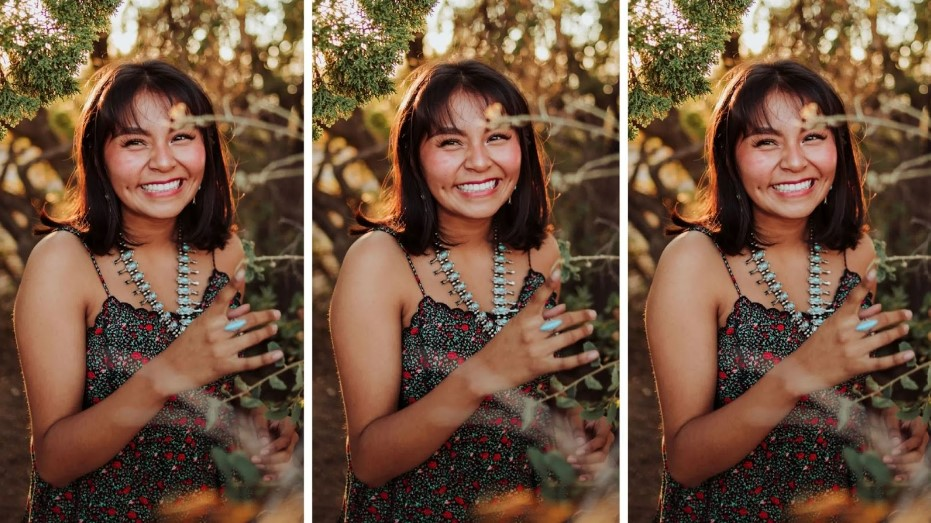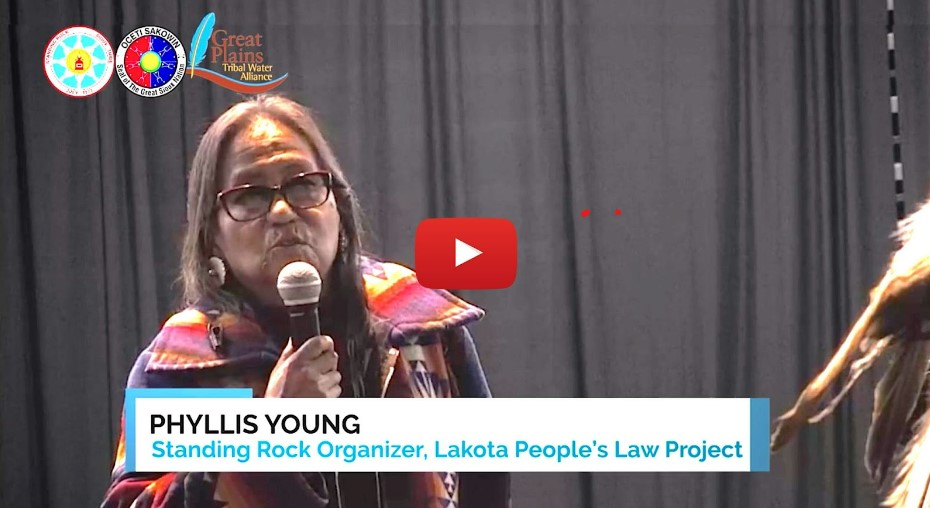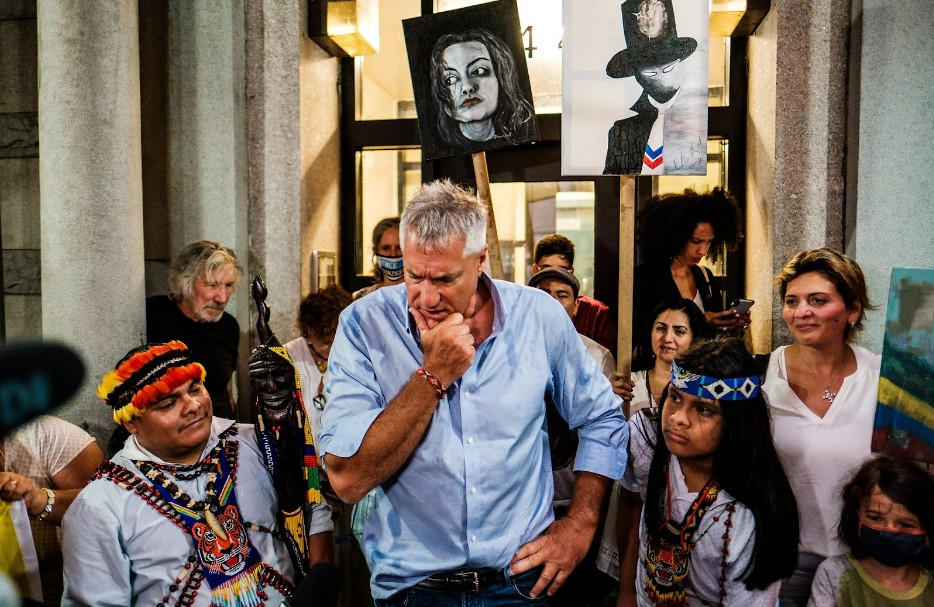
I’m Lily Joy Winder, and I write to you today to introduce myself as a friend and dedicated advocate for Indigenous health, joy, and excellence. I bring good news! As a 20-year-old Diné and Southern Ute activist currently attending Stanford University, I also focus on my campaign #PeopleNotMascots to enact policies that retire racist Native mascots in United States public schools. A few months back, knowing our goals were aligned, I reached out to Lakota Law — and from there, an exciting partnership was born. I’m happy to announce that in 2023 and beyond, we’ll support one another’s efforts to end appropriation, increase Native agency in media, and win Indigenous justice.

Thanks to Teen Vogue for this joyful article and triptych!
Just this week, New York officially banned Native mascots in K-12 schools that do not have specific tribal consent! This is an incredible victory for the Native children of New York and the growing national movement for Native mascot bans across the country. Currently, People Not Mascots is working toward introducing federal legislation and also working in Massachusetts, Minnesota, and with the Lakota Law team in California to pass Native mascot removal policies. We are at a real opportune and crucial moment in continuing to build this movement. We’re in the midst of exciting change!
People Not Mascots holds a special place in my heart as it also touches on other Indigenous issues I’m passionate about. All the work I do strives to create an America that sees my Native kin as human beings. At school, I research environmental racism through an Indigenous lens, which contributes to my passion for ending the Missing and Murdered Indigenous People epidemic. As you likely know, clear ties exist between Big Oil and violence against my Indigenous relatives.
I also share what I know about Indigenous issues on my social media platforms — most notably on my TikTok (@sheshortnbrown), which has gathered around 300k followers. My budding acting career lends yet another platform. Ultimately, I hope not only to remove negative imagery of Native folks, but to create imagery and media where we are centered and cared for. I hope you’ll follow along, and I’m grateful to you for your compassion and advocacy.
Ahéhee’ — thank you for your friendship!
Lily Joy Winder
Via the Lakota People’s Law Project




 Photo credit: Steven Donziger from the
Photo credit: Steven Donziger from the 
